Comments and Issues
Mr. President, give us good governance!
Published
2 years agoon
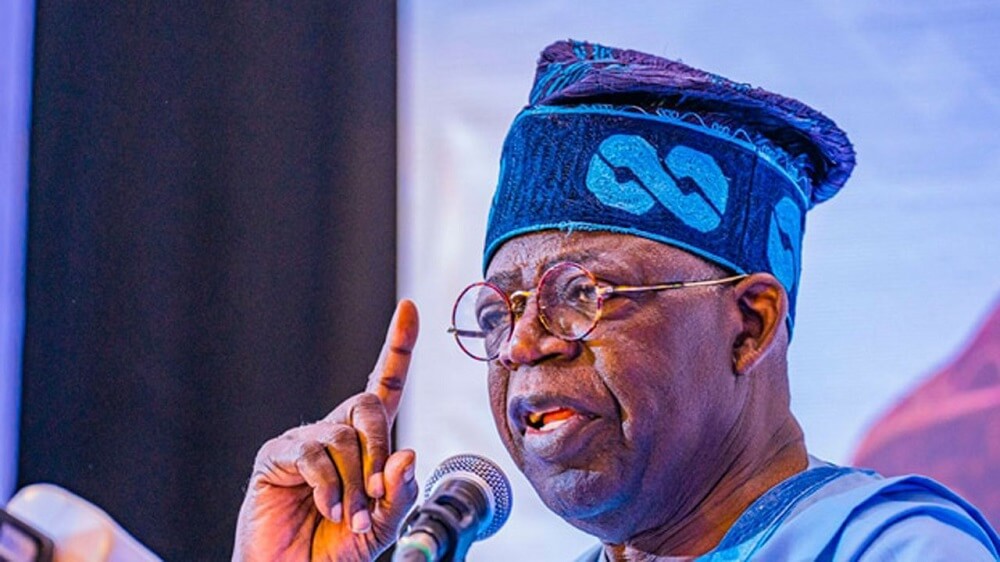
“The basic question of what is good, and why one should do what is good even when this is to one’s disadvantage, remains largely unanswered in the public domain; ” Pope Benedict XVI, in his book ‘Values in the a time of upheaval. ‘
Despite the avalanche of misgivings surrounding the emergence of the current president of Nigeria, in an election that was not free, fair and transparent, the dusts about the poll, should settle down now and the president must buckle up to the task of governing all parts of Nigeria. This is the most urgent task for the President just after he received the legal validation from no other institution but the highest judicial forum in the Country-the Supreme Court of Nigeria.
As aforementioned, it bears repeating to state that the supreme court of Nigeria has brought to an end, the nearly 200 days old political challenges mounted by formidable, nationally respectable abd credible Presidential candidates for the presidency in the 2023 February 2023 election especially from the main opposition political parties of Peoples Democratic Party (PDP) and the Labour Party.
In its considered ruling dated Thursday October 26th 2023, the Supreme Court decided the cases brought by Atiku Abubakar of the PDP and Peter Obi of the Labour Party in Favour of President Bola Ahmed Tinubu of the All Progressive Congress (APC). It is generally agreed that the nation’s apex court, shied away from reaching the most lawfully acceptable determination of all the prayers framed for the justices by the two Presidential candidates who are dissatisfied with the misconduct and crass mismanagement of the Presidential poll of February 25th 2023 by the incredibly morally rotten Mahmood Yakubu led independent national electoral commission.
Besides, as a well experienced politician, President Tinubu has in a measured manner, welcomed the verdict of the nation’s highest court which validated his election as the president of Nigeria till the year 2027.
After briefly reviewing the outcome of the political litigation that trailed the election of President Tinubu which has terminated in his favour at the Supreme Court, it is apt to ask the president to warn his sycophantic and lousy ministers such as Festus Keyamo, to stop their petty politics around the litigation instituted by the opposition parties and to face their arduous duties of bringing about quality and good governance.
Mr. Keyamo who has been made the Aviation minister even when he is unsuited for that highly technical job, should concentrate on delivering the mandate for making the aviation sector safe for the citizens and other users of our air ports as stated in the blueprints and policy directives of the central government.
President Tinubu should tell his ministers to work hard because Nigerians are sick and tired of watching their loquacious political office holders play whimsical and childish politics with the important assignments that they have been asked to deliver. It must be noted that those clothed with the temporary authority as cabinet level appointees as well as other related office holders, are only made servants of the people of Nigeria and should serve ultimately to satisfy public good and not to continuously inundate the media space with their illogical praise songs for their boss- Bola Ahmed Tinubu. The President must very quickly as a good Muslim that he says he is, stop the cult of personality worship that garrulous politicians like Festus Keyamo are building around his persona. Only few hours back, the Nigerian Economic summit group has this to say about the parlous economic environment that Nigerians confront: “Overall, the combination of rising commodity prices, global inflationary pressure, abd slow growth in many advanced economies affected global economic performance in the first half of 2023. In a fashion similar to the global economic performance, the Nigerian economy experienced slow growth in the period under review.” This was part of conclusions reached in their special report titled “state of the Nigerian economy: fixing the cracked walls: hard choices, better future.” From the texture of this summary of thr conclusions on the dire situation of the Nigerian economy aforementioned, it must be clear to these lousy ministers that we have got no time for frivolities. If any of these lousy ministers can’t work, the President should sack them immediately especially as ge is the President of all of Nigeria and not just for his small partisan family of the All Progressive Congress.
Besides, by virtue of sections 130 to 132 of the 1999 Constitution, the president, whose election has just been affirmed by the Supreme Court of Nigeria, is the President of all of Nigeria irrespective of the political, ethno-religious affiliations of the citizens numbering over 200 million even when just 8 million citizens voted for the President.
Specifically, sections 130 to 132 provide thus: 130.(1) There shall be for the Federation a President.
(2) The President shall be the Head of State, the Chief Executive of the Federation and Commander-in-Chief of the Armed Forces of the Federation. 131. A person shall be qualified for election to the office of President if – (a) he is a citizen of Nigeria by birth; (b) he has attained the age of forty years; (c) he is a member of a political party and is sponsored by that political party; and; (d) he has been educated up to at least School Certificate level or s equivalent. 132.-(1) An election to the office of President shall be held on a date to be appointed by the Independent National Electoral Commission.
(2) An election to the said office shall be held on a date not earlier than sixty days and not later then thirty days before the expiration of the term of office of the last holder of that office.
One of the European news agencies, had reported during the period which heralded the inauguration of the current president that Nigeria’s incoming President Bola Tinubu will inherit anaemic economic growth, record debt and shrinking oil output, but before he can start fixing these pressing problems he will need to secure public support for painful decisions.
Understandably, the agency stated that life is tough for citizens of Africa’s biggest economy, and a tangle of protectionist economic policies and foreign currency interventions have spooked investors.
An attempt by Nigeria to reduce hugely expensive fuel subsidies a decade ago met with mass public protests and had to be dropped. It reported that Tinubu, a member of President Muhammadu Buhari’s All Progressives Congress, helped propel the outgoing president to power in 2015.
Now, businesses, international investors and citizens are hoping he can use his experience as governor of Lagos state to recharge Nigeria’s struggling economy and finally confront its most difficult challenges. The news agency dwelt briefly about certain disturbing economic issues that have become debilitating and affirmed that Nigeria’s debt has ballooned by nearly 60% since 2015, hitting $103 billion last year, according to the Debt Management Office.
Debts’ growth is outstripping GDP expansion, and the government has warned that once off-book loans from the central bank are added to the tally, it could hit 77 trillion naira ($167 billion).
While Nigeria’s debt-to-GDP ratio is a modest 23.2%, compared with 60% in fellow oil producer Angola, experts say the portion of revenue needed to service the debt is alarming.
In January, ratings agency Moody’s downgraded Nigeria, citing those figures. According to some calculations, debt servicing costs surpassed revenue last year. Gregory Smith, emerging markets fund manager with M&G Investments said Nigeria’s “shockingly low levels of government revenue” also raised questions around its ability to spend to boost growth.
“The debt pressures are symptomatic of that lack of government revenue,” Smith said.
The foreign news agency reports that some of the revenue troubles stem from rampant, industrial-scale theft that last year pressed oil output to its lowest in more than 30 years. Oil and gas typically fund half of Nigeria’s budget and 90% of its foreign exchange. Continued theft, underinvestment and industrial disputes, hinder output.
“The market appears quite myopic in focusing on those two things in particular: the FX policy and the removal of fuel subsidies in addition to broader change at the CBN,” said Yvette Babb of fund manager William Blair.
The news agency rightly asserted that Buhari’s government created a complicated web of official and parallel exchange rates in an effort to support the embattled naira. It also created a long list of items banned from using central bank foreign exchange.
Businesses say resulting widespread dollar shortages are crushing, while investors say the difficulty in getting money out of the country has strangled investment.
Smith and Babb said naira bonds, and investing locally, are virtually impossible as a result.
“The main thing is problems with being able to exit the market even if you felt like you could make a return,” Smith said.
Government data showed that foreign direct investment dropped from $2.2 billion in 2014, the year before Buhari took office, to $468 million last year. Unemployment is said to be around 38%.
The World Bank, recently warned that Nigeria’s economic growth is too slow to address the challenge of extreme poverty in the country.
Meanwhile, the World bank has retained its economic growth (Gross Domestic Product, GDP) forecast of 2.8% for Nigeria in 2023, citing challenges of high inflation, foreign exchange shortages, and shortages of banknotes caused by currency redesign, so reports Reuters.
The World Bank, it quoted, gave the warning in the Global Development Prospect report for June 2023.
Among other things, the bank downgraded its economic growth forecast for Sub Saharan Africa to 3.2% for 2023, from 3.4% projected in its April World Economic Outlook. It also projected that global economic growth will slow to 2.1% in 2023, with prospects clouded by financial risks.
The World Bank stated: “After growing 3.1 percent last year, the global economy is set to slow substantially in 2023 to 2.1 percent, amid continued monetary policy tightening to rein in high inflation, before a tepid recovery in 2024, to 2.4 percent.
“Growth in Sub-Saharan Africa (SSA) continued to decelerate earlier this year owing to various country-specific challenges and heightened external economic headwinds.
“Growth in the three largest SSA economies – Nigeria, South Africa and Angola – slowed to 2.8 percent in 2022 and continued to weaken in the first half of this year.
In Angola and Nigeria – SSA’s largest oil producers – the growth momentum has stalled amid lower energy prices and stagnant oil production.
“The post-pandemic rebound in Nigeria’s non-oil sector cooled earlier this year because of persistently high inflation, foreign exchange shortages, and shortages of banknotes caused by currency redesign.
“Growth in SSA is expected to decline further to 3.2 percent in 2023 before picking up to 3.9 percent in 2024. The recovery in South Africa is projected to slow to 0.3 percent this year as widespread power outages weigh heavily on activity and contribute to the persistence of inflation.
“Growth in Nigeria is expected to remain barely above the population growth – far slower than needed to make significant inroads into mitigating extreme poverty.
“Outlook downgrades, however, extend beyond the major regional economies with elevated cost of living restraining private consumption and tighter policies holding back a pickup in investment in many countries.
“More broadly, worsened domestic vulnerabilities together with tight global financial conditions and weak global growth are expected to keep recoveries subdued.”
There is therefore no gainsaying the obvious fact that the current president has his job cut out and there is no need wasting precious times playing petty politics when unemployment, poverty and insecurity have constituted major impediments to the growth and advancement of the economy of Nigeria and the global standing of the country. So, all we are saying to Mr. President, is to give us good governance and cut down on the costs of governance and the expanding corruption and economic crimes in top flight public offices must be confronted and demolished.
*EMMANUEL ONWUBIKO is head of the HUMAN RIGHTS WRITERS ASSOCIATION OF NIGERIA and was NATIONAL COMMISSIONER OF THE NATIONAL HUMAN RIGHTS COMMISSION OF NIGERIA.
Trending
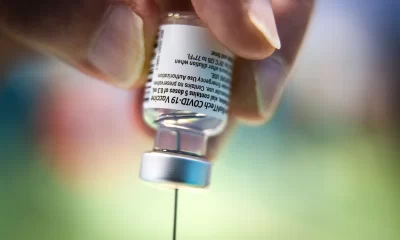
 Health7 days ago
Health7 days agoFOI data show thousands of heart failures reports linked to AstraZeneca COVID-19 vaccine

 Football1 week ago
Football1 week agoChampions League: 12 Clubs knocked out as group phase ends

 News1 week ago
News1 week agoTinubu approves purchase of 2 new satellites to strengthen Nigeria’s digital infrastructure

 Trends2 days ago
Trends2 days agoTonto Dikeh reunites son with Churchill after decade-long split
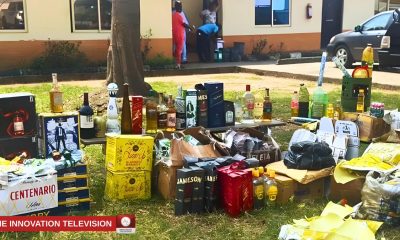
 Health1 week ago
Health1 week agoInvestigation uncovers industrial-scale counterfeit hub in Lagos’ Ojo Barracks
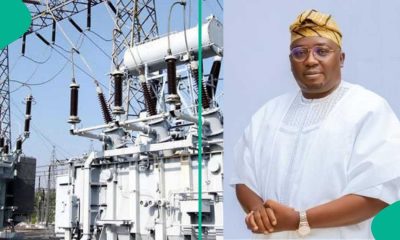
 Business1 week ago
Business1 week agoDeeper issues behind Nigeria’s repeated grid collapses —Experts
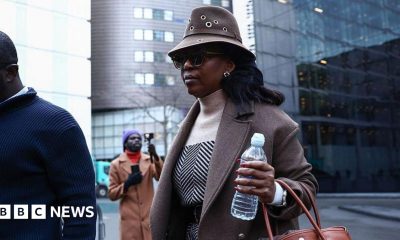
 Crime7 days ago
Crime7 days agoUK Court hears digital, financial evidence in Diezani Alison-Madueke corruption trial

 Latest15 hours ago
Latest15 hours agoYoruba film industry mourns as popular actress aunty Ajara passes away

